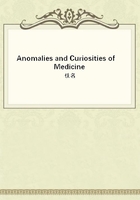
第3章
It need hardly be said that the lay-journalist and newspaper reporter have usually been ignored by us, simply because experience and investigation have many times proved that a scientific fact, by presentation in most lay-journals, becomes in some mysterious manner, ipso facto, a scientific caricature (or worse !), and if it is so with facts, what must be the effect upon reports based upon no fact whatsoever? It is manifestly impossible for us to guarantee the credibility of chronicles given. If we have been reasonably certain of unreliability, we may not even have mentioned the marvelous statement. Obviously, we could do no more with apparently credible cases, reported by reputable medical men, than to cite author and source and leave the matter there, where our responsibility must end.
But where our proper responsibility seemed likely never to end was in carrying out the enormous labor requisite for a reasonable certainty that we had omitted no searching that might lead to undiscovered facts, ancient or modern. Choice in selection is always, of course, an affair de gustibus, and especially when, like the present, there is considerable embarrassment of riches, coupled with the purpose of compressing our results in one handy volume. In brief, it may be said that several years of exhaustive research have been spent by us in the great medical libraries of the United States and Europe in collecting the material herewith presented. If, despite of this, omissions and errors are to be found, we shall be grateful to have them pointed out. It must be remembered that limits of space have forbidden satisfactory discussion of the cases, and the prime object of the whole work has been to carefully collect and group the anomalies and curiosities, and allow the reader to form his own conclusions and make his own deductions.
As the entire labor in the preparation of the forelying volume, from the inception of the idea to the completion of the index, has been exclusively the personal work of the authors, it is with full confidence of the authenticity of the reports quoted that the material is presented.
Complete references are given to those facts that are comparatively unknown or unique, or that are worthy of particular interest or further investigation. To prevent unnecessary loading of the book with foot-notes, in those instances in which there are a number of cases of the same nature, and a description has not been thought necessary, mere citation being sufficient, references are but briefly given or omitted altogether. For the same reason a bibliographic index has been added at the end of the text. This contains the most important sources of information used, and each journal or book therein has its own number, which is used in its stead all through the book (thus, 476 signifies The Lancet, London; 597, the New York Medical Journal; etc.).
These bibliographic numbers begin at 100.
Notwithstanding that every effort has been made to conveniently and satisfactorily group the thousands of cases contained in the book (a labor of no small proportions in itself), a complete general index is a practical necessity for the full success of what is essentially a reference-volume, and consequently one has been added, in which may be found not only the subjects under consideration and numerous cross-references, but also the names of the authors of the most important reports. A table of contents follows this preface.
We assume the responsibility for innovations in orthography, certain abbreviations, and the occasional substitution of figures for large numerals, fractions, and decimals, made necessary by limited space, and in some cases to more lucidly show tables and statistics. From the variety of the reports, uniformity of nomenclature and numeration is almost impossible.
As we contemplate constantly increasing our data, we shall be glad to receive information of any unpublished anomalous or curious cases, either of the past or in the future.
For many courtesies most generously extended in aiding our research-work we wish, among others, to acknowledge our especial gratitude and indebtedness to the officers and assistants of the Surgeon-General's Library at Washington, D.C., the Library of the Royal College of Surgeons of London, the Library of the British Museum, the Library of the British Medical Association, the Bibliotheque de Faculte de Medecine de Paris, the Bibliotheque Nationale, and the Library of the College of Physicians of Philadelphia.